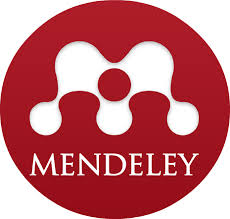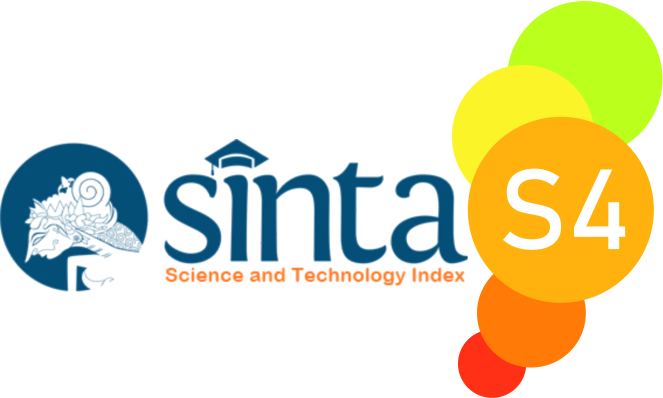STRATEGI PEMBELAJARAN GURU DALAM MENGELOLA AMARAH SISWA (STUDI KASUS DI KB ANGGREK MUARA BADAK TAHUN AJARAN 2015/2016
DOI:
https://doi.org/10.24903/jw.v1i1.175Abstract
Early children who control their emotions well, in general will be accepted by the environment well too. Conversely, angry students will be very detrimental to other students because a lot of science that should get ignored.by that's why a strategy used by teachers in managing anger of children is very determine the outcome of teaching and learning process. This study aims to find out the Teacher Learning Strategy in Managing Student Angarah Group B in the Anggrek Muara Badak Playing Group of Learning Year 2015/2016. In this study the approach used is qualitative descriptive method approach that is research that intends to understand the phenomenon about what experienced research subjects. The subjects were sixteen students, consisting of five boys and eleven girls. Data collection in this study using observation sheet, Interview Sheet, and Documentation. Data analysis techniques used in this study are Miles and Hiberman techniques that include data collection (data collection); data reduction; presentation of data (data display); and conclusion or verification (conclution drawing & verifying). From the results of research that has been done revealed that the Teacher Learning Strategy in Managing Student Angarah on Group B in the Clock Play Anggrek Estuary Rhino Year Learning 2015/2016 refers to the three important elements of emotional intelligence; (1) Personal skills (self-managing); (2) social skills (dealing with a relationship); (3) social skills (intelligence to arouse the desired response to others). While the cause of students become angry is: (1) because Lack of attention, too mendekti, have a brother who was not far adrift until the pattern of parenting that tends to side with one child. (2) Although there is a single child who is angry but it happens because the parenting pattern of parents who tend to spoil the child too.References
Arikunto, Suharsimi. 2010. ProsedurPenelitian. Jakarta : Rineka Cipta.
Hurlock, Elizabet. 1992. Perkembangan Anak. Jakarta. PT. Erlangga. Dharma,Surya,.M.Pd.,Ph.D. 2008.Strategi Pembelajaran. Direktur Tenaga Kependidikan,Ditjen PMPTK .Jakarta.
Hadi, Amirul dan H. Haryono. 2005. Metodologi Penelitian Pendidikan.Bandung: PT. Pustaka Setia.
http://dachun91 .wordpress.com/2010/11/22/karakteristik-anak-usia-dini/) diakses bulan September2015
http://novaoktriyani.blogspot.com/2012/12/karakteristik-perkembangan-anak-usia.html diakses bulan September2015
Lexy J.Moleong,2010 .Metodologi Penelitian Kualitatif, (Bandung,: Remaja Rosdakarya,
Margono, S.Metodologi Penelitian Pendidikan. PT: Rineka Cipta
Masitoh,dkk. 2007. Strategi Pembelajaran TK. Jakarta. PT : Universitas Terbuka
Mulyadi, Seto. 2004. Membantu anak Balita Mengelola Amarahnya. PT : Erlangga
Pusat Bahasa Departemen Pendidikan Nasional. 2007. Kamus Besar Bahasa Indonesia. Jakarta : Balai Pustaka
P. Joko Subagyo, 1997 .Metode Penelitian Dalam Teori dan Praktek. Jakarta : Rineka Cipta.
Sanjaya, Wina. 2008. Strategi Pembelajaran. Jakarta: Media Prenada
Sanjaya, Wina. 2010. Strategi Pembelajaran Berorientasi Standar Proses Pendidikan. Jakarta. PT : Kencana.
Syaiful Bahri Djamarah dan Aswan Zain, . Strategi Belajar Mengajar, (Jakarta:Rineka Cipta,), Ct. ke-1,
Sugiyono. 2010 .Metode Penelitian Kuantitatif Kualitatif dan R&D. Bandung. PT: CV. Alfabeta.
Supardi. 2006. Penelitian Tindakan Kelas. Jakarta. PT : Bumi Aksara
Tandry, Novita. 2011. Buku Pintar Perilaku Anak. PT. Libri.
Tim Pengembang PAUDKementerian Pendidikan dan Kebudayaan, Direktorak Jenderal Pendidikan Anak Usia Dini Nonformal dan Informal.2014. Pengembangan Kecerdasan Sosial Emosional Anak. Pusat Pengembangan Pendidikan Anak Usia Dini Non formal dan Informal (PP-PAUDNI) Regional II Semarang.
Tim Prima Pena, . Kamus Besar Bahasa Indonesia, Gitamedia Press,
Uno, B. Hamzah. 2006. Perencanaan Pembelajaran. Jakarta: Bumi Aksara.
Yamin, Martinis. 2006. Strategi Pembelajaran Berbasis Kompetensi. Jakarta: Gaung Persada Press.
Yin, Robert K. 1996. Studi Kasus (Desain & Metode). PT. Raja Gravindo Persada
Downloads
Published
How to Cite
Issue
Section
License
Authors retain copyright and grant the journal right of first publication with the work simultaneously licensed under a Creative Commons Attribution 4.0 International License that allows others to share the work with an acknowledgement of the work's authorship and initial publication in this journal.









